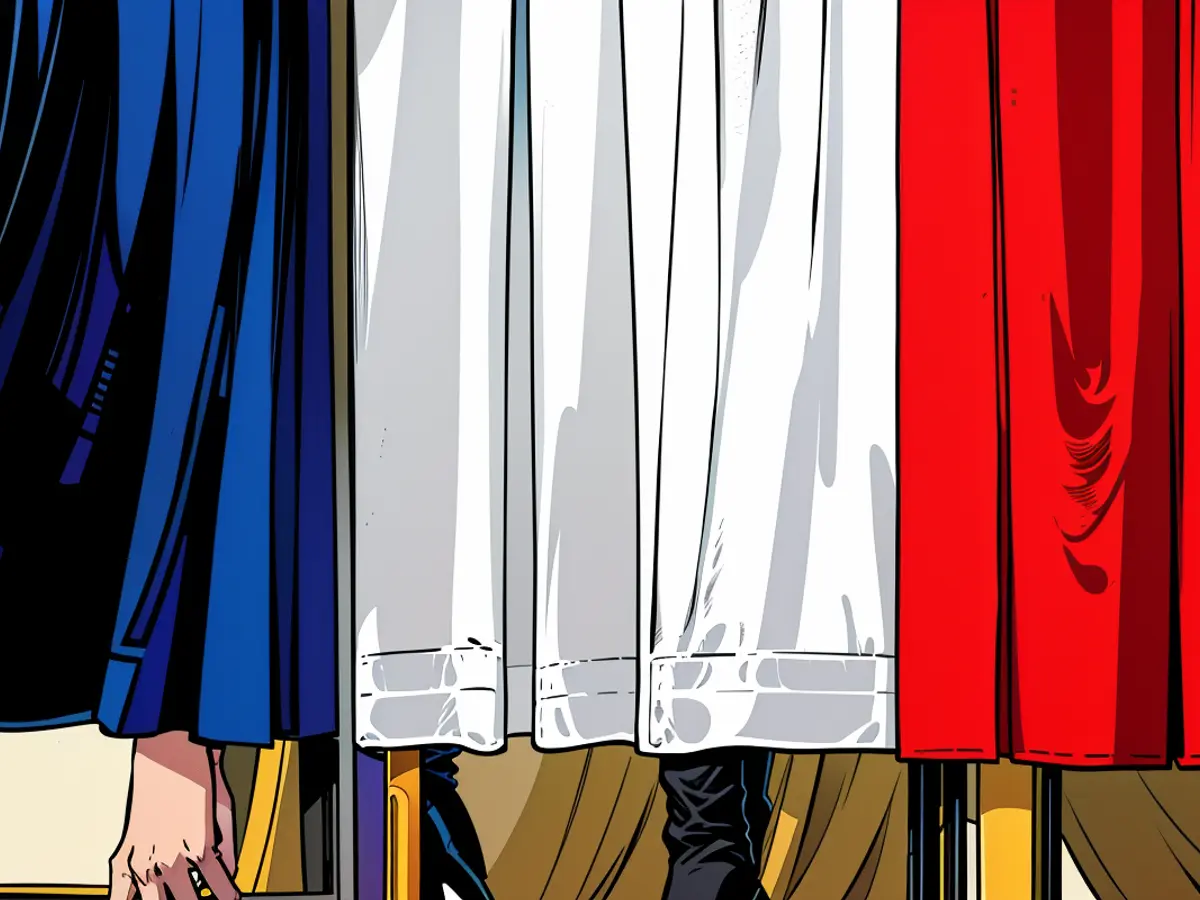Elections - France: landmark parliamentary election underway
In France, the first round of the decisive parliamentary elections began in France. By Sunday afternoon, every fourth eligible voter had already cast their vote. The turnout at noon was 25.9%, according to the Interior Ministry. This was 7.47 percentage points more than at the same time during the previous parliamentary election two years ago.
The approximately 49.3 million eligible voters can vote on whether the Center-Lager of State President Emmanuel Macron will continue to have a majority in the National Assembly and thus form the government, or if a power shift in Paris is imminent and Prime Minister Elisabeth Borne has to clear the field. The far-right Rassemblement National (RN) of Marine Le Pen sees chances of a majority in the parliamentary chamber and the position of Prime Minister. The new Leftist New Popular Front also aims for a government change. Macron's presidency is not at stake in the vote.
Many leading politicians had already cast their votes in the morning, including Macron, Le Pen, Borne, and RN leader Jordan Bardella. The last polling stations close at 8:00 pm. Then, calculations for the election outcome will begin.
Macron faces another potential weak showing - RN is leading in polls
Macron dissolved the National Assembly after the clear defeat of his Liberals in the European elections and the high victory of the far-right RN and announced new elections for the French parliament in two rounds. The second and decisive round is on July 7.
State President Macron hopes to build a relative majority of his Center-Lager in the National Assembly through the vote. However, it is considered unlikely that he will achieve this. According to surveys, the RN and its allies could come in first with 36-36.5% in the first round. Macron's camp, on the other hand, is projected to land in third place with only 20-20.5%. The New Popular Front could come in second with 29%.
The exact composition of the parliament after the election is still uncertain. Fewer than the least number of seats will be awarded in the first round. In many constituencies, decisive second-round runoffs will be crucial. While only five seats were won in the first round of the regular parliamentary election two years ago, Ipsos forecasts suggest that as many as 80-90 seats could be won directly this time. This is due to the expected higher voter turnout and a stronger concentration on the three political alliances.
Although statements about the second round are difficult, projections assume that the Far-Right could be the strongest force in the National Assembly. Whether they will have enough seats for an absolute majority is unclear - also because local alliances are often formed between the two rounds, which can influence the outcome. While the Left could remain stable, Macron's Center-Lager could lose seats.
A victory for the Far-Right would have international consequences.
Such an outcome would have serious consequences. The National Assembly is one of the two French parliamentary chambers. It is involved in legislation and can bring down the government through a vote of no confidence. If another block, other than Macron's Center-Right faction, were to gain an absolute majority, Macron would be de facto forced to appoint a premier from their ranks. This is called cohabitation. Macron's power would significantly shrink, while the premier would become more influential.
The Nationalists explicitly aim to win the election and take on government responsibility. RN Party Chief Jordan Bardella is expected to become Prime Minister. In such a scenario, Macron would face challenges in pushing his lines internationally. The election is therefore being closely watched in Brussels and Berlin.
- The Rassemblement National, led by Jordan Bardella, sees an opportunity to gain a majority in the parliamentary chamber during these elections in France.
- In the first round of the parliamentary elections in Paris, Marine Le Pen from Rassemblement National, along with other prominent politicians, cast their votes.
- If the far-right Rassemblement National and its allies emerge as the largest force in the first round of the parliamentary elections, the position of Prime Minister could shift in France.
- Emmanuel Macron, the Prime Minister, and his Center-Lager are hoping to maintain a majority in the National Assembly following the parliamentary election in France.
- The outcome of the parliamentary election in France could potentially result in cohabitation, with another block holding an absolute majority, leading to a premier from their ranks being appointed, and Macron's power being limited.
- The results of the parliamentary elections in France will have significant implications for France's position on the international stage, with Brussels and Berlin closely monitoring the process.








